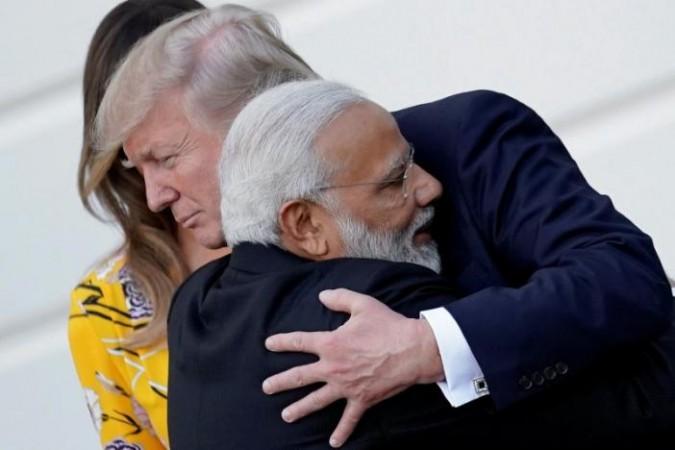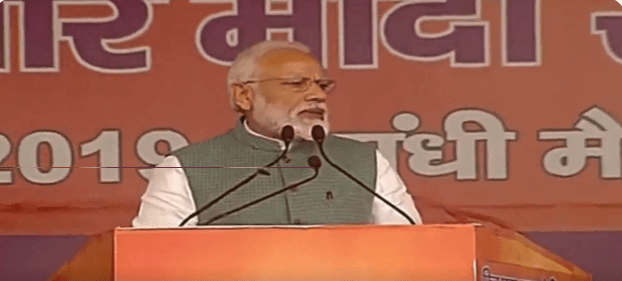
India is not planning retaliatory action to US President Donald Trump's move of revoking the preferential trade partner status as it will not have much impact on trade between the world's two largest democracies. Political observers, however, believe the timing of the US decision will be seen as a set back to the claims of bonhomie between President Trump and Prime Minister Narendra Modi ahead of a crucial general election.
About $ 5.6 billion worth of Indian exports to the US benefit from the duty-free channel that the Generalised System of Preferences (GSP) offers. President Trump has intimated the US Congress his intention to withdraw this advantage to Indian and Turkish firms.
A withdrawal of the GSP for Indian products would have limited impact, Secretary to the Department of Commerce Anup Wadhawan said, Business Standard reported. The two countries had been working on a trade package on matters of each other's concerns, he added.
The major Indian products covered by US GSP are agricultural products including meat and fisheries as well as handicraft products. These are the specialized products that most developing nations export. Dropping out of the GSP will affect Indian producers' competitiveness against other developing nations.
In his letter informing the US Congress of his intent to throw out India as a GSP beneficiary, President Trump argues that New Delhi has failed to assure Washington that it will provide equitable and reasonable access to its markets in numerous sectors.
"I will continue to assess whether the Government of India is providing equitable and reasonable access to its markets, in accordance with the GSP eligibility criteria," the letter said.

In a separate letter, the US president informed the Congress of his intent to terminate the GSP beneficiary designation of Turkey, primarily because the Turkish economy had improved in the last four-and-a-half decades.
"In the four-and-a-half decades since Turkey's designation as a GSP beneficiary developing country, Turkey's economy has grown and diversified," the letter said.
"Increases in Gross National Income per capita, declining poverty rates and export diversification by trading partner and by sector are all evidence of Turkey's increased level of economic development. In addition, Turkey has graduated from other developed countries' GSP programs due to its increase in economic development or through reciprocal arrangements," it added.
In a statement, the US Trade Representative (USTR) said India's termination from GSP followed its failure to provide the US with assurances that it would provide equitable and reasonable access to its markets in numerous sectors, according to the report. "By statute, these changes may not take effect until at least 60 days after the notifications to Congress and the governments of India and Turkey, and will be enacted by a Presidential Proclamation," the USTR said.
Under the United States GSP programme, certain products can enter the US duty-free if the beneficiary developing countries meet the eligibility criteria established by Congress.














